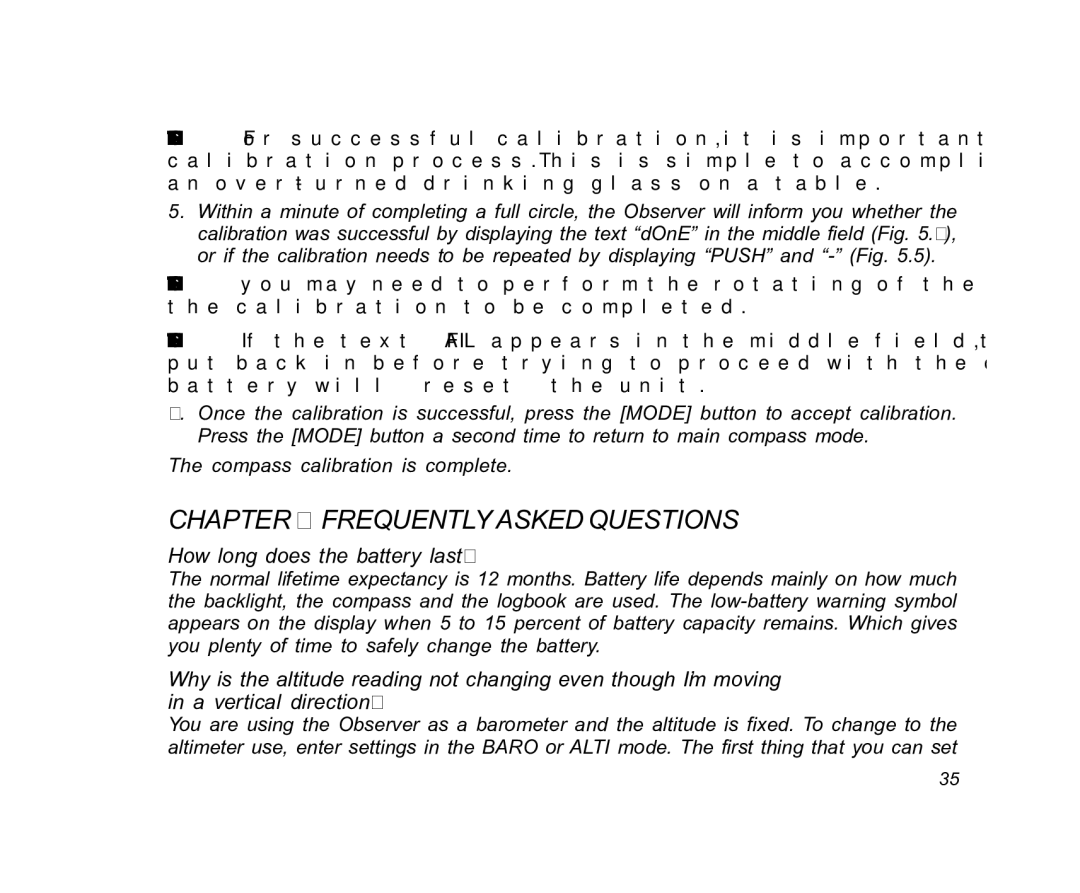NOTE: For successful calibration, it is important to hold the Observer level during the calibration process. This is simple to accomplish. For example, place the Observer on an
5.Within a minute of completing a full circle, the Observer will inform you whether the calibration was successful by displaying the text “dOnE” in the middle field (Fig. 5.7), or if the calibration needs to be repeated by displaying “PUSH” and
NOTE: you may need to perform the rotating of the compass more than twice around for the calibration to be completed.
NOTE: If the text “FAIL” appears in the middle field, the battery should be removed and put back in before trying to proceed with the calibration process. The removal of the battery will “reset” the unit.
6.Once the calibration is successful, press the [MODE] button to accept calibration. Press the [MODE] button a second time to return to main compass mode.
The compass calibration is complete.
CHAPTER 6 FREQUENTLY ASKED QUESTIONS
How long does the battery last?
The normal lifetime expectancy is 12 months. Battery life depends mainly on how much the backlight, the compass and the logbook are used. The
Why is the altitude reading not changing even though I’m moving in a vertical direction?
You are using the Observer as a barometer and the altitude is fixed. To change to the altimeter use, enter settings in the BARO or ALTI mode. The first thing that you can set
35
